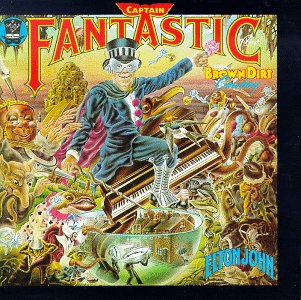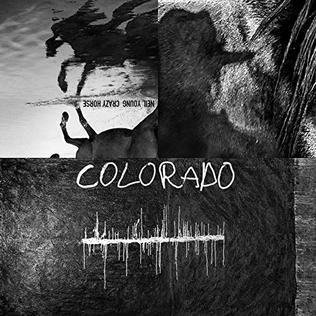Over a period of three months, Frank released four distinct albums, each unique and challenging in its own way. Outside of
Them Or Us, none could really be called a rock album, and the two instrumental releases would take some getting used to. But
Thing-Fish would divide listeners most of all.
This was not the first musical Frank had envisioned, but of all his earlier grand designs, this came closest to realization. It was a bold idea: at a time when AIDS was barely beginning to register on the mainstream public consciousness, Frank expanded his opinion that the disease was the result of a government-sponsored scientific experiment to the extent that in addition to making people very sick and killing them, the effects would also lead to mutations of cartoonish extremities based on ongoing stereotypes.
Of course, any idea worth doing is worth overdoing, so Frank took this scenario and packaged it as a three-record set purporting to be the original cast recording of the opus intended for the Broadway stage. The cover depicts the title character and narrator, whose name is based on a character from the Amos ‘n Andy radio and TV show, with an oversized potato-shaped head and cartoonish duck lips, in conversation with one of the chorus members, known as the Mammy Nuns, all of whom are described as dressed like Aunt Jemima from the syrup packaging of the same name. (Really, we’re not making this up.)
The plot begins, as all Broadway shows do, with Thing-Fish (voiced by Ike Willis) explaining how the experiments of the Evil Prince led to their current condition. The proceedings soon turn into a play-within-a-play, as a yuppie couple named Harry and Rhonda (played by Terry and Dale Bozzio, who’d left the Zappa fold to form Missing Persons) wander into the theater expecting something like Cats. Much like what happened when the Mothers of Invention had a theater residency in 1967, Harry and Rhonda are assimilated into the action and subjected to various psychological horrors. For example, we meet Harry-As-A-Boy (given a genuinely hilarious gee-whiz delivery by the second Bob Harris to play with Zappa), who explains that women’s liberation turned Harry gay, disguised by the yuppie drive to succeed at all costs. Meanwhile, Rhonda is shown to have evolved from an actual blow-up doll to a ruthless feminist businesswoman. Their inevitable disgust for and at each other culminates in side five’s “Briefcase Boogie”, wherein Rhonda has sexual congress with said object, described in full four-letter detail. (The Broadway show never happened, but a simple search online makes it relatively easy to find a pictorial from Hustler magazine that provides visuals. This is also absolutely true.)
Much of the music on Thing-Fish is obscured by dialog, but for the most part, the “songs” are previously released Zappa tracks given new context with the overlaid commentary (for example, “The ‘Torchum’ Never Stops” in an extended mix of the Zoot Allures track). “No Not Now” appears twice, once with new vocals by Ike, and again as the finale, played backwards with the new title “Won Ton On”. The music that isn’t recycled is mostly performed on the Synclavier, which also provides the computerized vocals by the Crab-Grass Baby, the horrifying offspring of Harry’s depraved televangelist father and, apparently, Rhonda in her inflatable incarnation. As for new “songs”, “He’s So Gay”, a twisted mélange of doo-wop and upbeat synth pop, would have fit perfectly on the other ‘80s “rock” albums. “Brown Moses” is supposed to be the commentary by that character (described as resembling Uncle Ben from the rice box), portrayed by Johnny “Guitar” Watson. “Wistful Wit A Fist-Full” is a stereotypically Broadway showcase for piano and voice, in this case delivered by the remorseful Evil Prince in the style of Al Jolson. (Also, there are zero guitar solos on any of the six sides.)
Much as with 200 Motels and Joe’s Garage, this is an angry album, full of black humor, blanket indictments, and uncomfortable truths. It is not an easy listen, and while the libretto helps explain the action better than the dialog, one must actually hear Thing-Fish’s intonation to understand some of the purposely mangled language. Thing-Fish is hardly the first play to depict sexual activity, deviant or otherwise, but even after something like Spring Awakening became a sensation, we really can’t see how Frank really thought something like this would ever be staged per his script. Even if it was, critics would lambaste it and the Tonys would ignore it, which Frank would only flog as proof of ongoing censorship and the inability of the average American to understand his genius.
Frank Zappa Thing-Fish (Original Cast Recording) (1984)—1½


:format(jpeg):mode_rgb():quality(90)/discogs-images/R-4590146-1460469816-4253.jpeg.jpg)
:format(jpeg):mode_rgb():quality(40)/discogs-images/R-14344727-1572790118-7382.jpeg.jpg)
:format(jpeg):mode_rgb():quality(90)/discogs-images/R-597916-1521995791-5886.jpeg.jpg)




